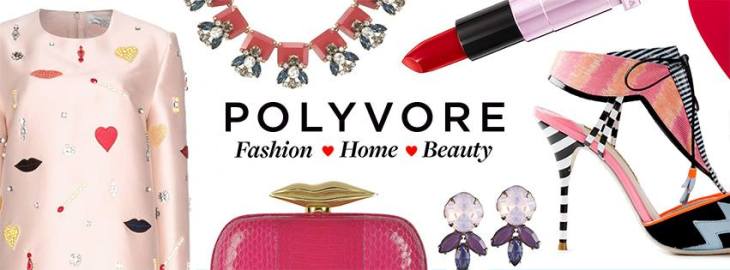Style community Polyvore is out today with a new iPhone app that introduces personalization to the fashion-focused social shopping site for the first time. The app, which also received a visual makeover to present items in a cleaner, more streamlined format, now allows users to like and hide items from their feed in order to inform the algorithms that power a suggestions-filled personalized boutique of sorts called “Just for You.”
The company now has 20 million users, and, to date, has seen over 100 million items added to its network since its debut, with another 2.2 million arriving on a monthly basis. Though it has also expanded in home goods and décor, the site is still known best for its fashion community, whose members are now building around 3 million outfits per month via Polyvore’s website and its mobile apps for iOS and Android.
In fact, mobile is now where Polyvore is seeing a large amount of activity, with 50 percent of Polyvore “sets” (user collections, such as outfits or room designs) being created on a smartphone or tablet device, says co-founder and CEO Jess Lee.
But until today, Polyvore hadn’t taken advantage of the large amount of data it had collected about the items, attributes, likes and interests of its community members.
With “Just for You,” however, Lee says Polyvore is attempting to build what she calls the “Style Graph,” (i.e. if Facebook’s network of users is known as the “social graph,” Polyvore’s is instead focused on users’ personal tastes when it comes to clothing, shoes, accessories, and items for the home).
[gallery ids="1066388,1066389,1066390,1066391,1066392"]
Building this new feature is more complicated than simply looking at what users like or click on while on Polyvore, though. A user’s preferences when it comes to fashion, explains Lee, are influenced by a number of factors, including whether items are for work or weekend wearing, price points, brand, seasonality, trendiness, popularity, and much more.
In addition, in order to even classify items users like and then match them to others, Polyvore first has to clean up the product data, so it can determine things like color, shape, type, brand, etc. – item attributes that play a role determining how one product may relate to another. But the personalization engine doesn’t just show you more black dresses when you “like” a black dress, for example. It also analyzes your clicks, likes, views, the product’s attributes and how that product fits into a variety of sets users have built on the site.
Complementary products are “sort of our secret sauce,” says Lee. “We have this really amazing outfit and set data nobody else has – we can show you products that match the things you like.” In other words, if you like a teal handbag, Polyvore could show you the perfect white dress or gold necklace to match it – automatically.
In addition, the company also uses collaborative filtering to find users with similar tastes as you, and then shows you recommendations based on what they like.
The new personalization technology could potentially open up another business for Polyvore, which could license the technology to its retail partners in the future – something Lee says is in the “realm of possibilities,” though Polyvore isn’t going this route in the near-term. The company today has moved away from the affiliate model to the CPC model, and now has a growing advertising program that it will detail more thoroughly in the near future.
The updated Polyvore app is live now for iPhone. The company hasn’t yet determined whether Android or iPad will be next to receive the same update.
